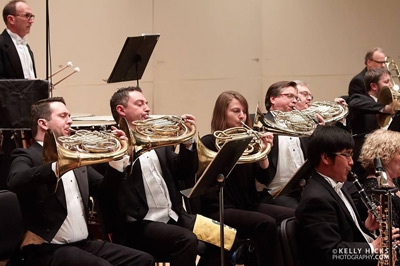Scheduling, Budgeting, Negotiating, Planning, Practicing, Performing
One of my main jobs as ASO’s Orchestra Personnel and Operations Manager is to create the orchestra’s rehearsal and performance calendar and ensure we have all of the musicians we need for each concert we perform.
The orchestra schedule is very full, which means we have to carefully negotiate dates with all of the venues in which we perform across the state, while making sure the concerts are evenly spaced throughout the season. Once the calendar is set, we can begin to hire the orchestra.
ASO’s musicians come from all across the region. While many of our musicians live in Little Rock and central Arkansas, a number of our performers travel from Illinois, Louisiana, Missouri, Oklahoma, Tennessee, and Texas to perform with us. Besides playing with the ASO, most of our musicians also perform in other orchestras, teach, and many have other jobs in and outside of music. In other words, they stay very busy!
The standard sized orchestra is made up of musicians who, through successful auditions, have been able to join the orchestra as permanent members. Depending on the needs of the music, we might be bringing in several extra musicians to supplement the standard orchestra. A typical orchestra concert, for example, will have anywhere from 60 to 80 musicians needed. Once the orchestra is hired, arrangements are made for out of town musicians’ travel and accommodations (through our wonderful partner hotel, Crowne Plaza).
All of this costs money, and in my role in overseeing operations, that means we have been spending the last several months budgeting and planning for all the expenses that go into our productions, including venue rental, stage labor, lights, sound, guest artists, music, musicians, travel, accommodations, and more.
Lastly, once the business day is over, it is home to practice as I have the great pleasure of getting to play in ASO’s wonderful horn section!


